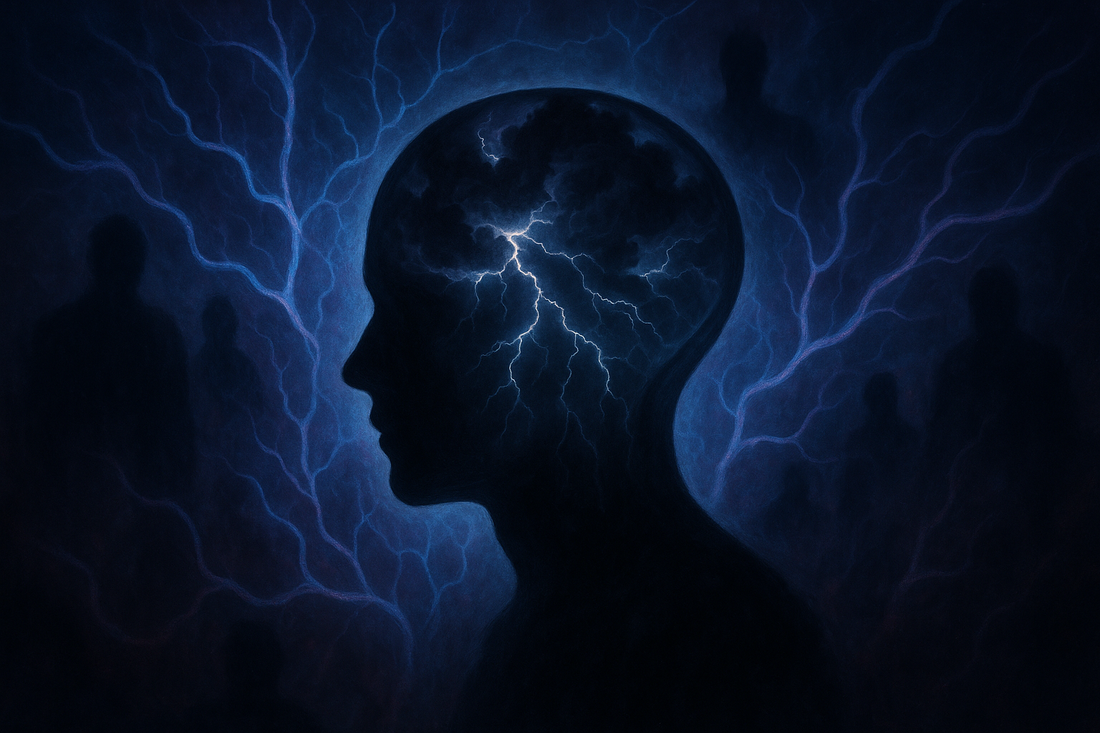
Fearless from Within: The Science and Wisdom of a Pure Mind
“Why should one be afraid of anyone if there be no evil thought in us?” This timeless question points to a universal truth: fear is often born not from external threats, but from the unrest within our own minds. Across philosophy, spirituality, and modern science, this idea resonates deeply.
The Power of a Clear Conscience
Fear often stems from guilt, shame, or moral conflict. When our thoughts and intentions are pure, we naturally experience inner calm. A clear conscience allows us to:
- Act confidently without worry of exposure
- Align actions with values without self-doubt
- Move through life with emotional clarity
In essence, a mind free of malice or selfishness carries no burden of fear.
Neuroscience Insights: How Fear Works in the Brain
Modern neuroscience has mapped the pathways of fear and emotional regulation:
- The Amygdala – The Brain’s Fear Center
- Detects potential threats (physical, social, or moral)
- Activates the body’s “fight or flight” response by releasing stress hormones such as cortisol and adrenaline
- The Prefrontal Cortex – The Rational Regulator
- Evaluates risk, predicts consequences, and modulates the amygdala’s response
- Helps distinguish real danger from perceived or imagined threats
- The Hippocampus – Memory and Context
- Remembers past experiences to guide reactions
- A person with unresolved guilt or moral conflict may repeatedly trigger fear circuits due to negative memory associations
- Stress and the Nervous System
- Chronic activation of the fear response can lead to anxiety, insomnia, and even changes in brain structure over time
- Emotional dysregulation is often amplified by internal conflict, self-doubt, or a guilty conscience
Key Insight: Neuroscience shows that fear is often internally generated, especially when moral conflict, guilt, or negative self-reflection are present. A pure conscience helps prevent unnecessary activation of these fear circuits, stabilizing both mind and body.
Ayurveda and Fear: The Mind-Body Perspective
Ayurveda views fear as a manifestation of Vata dosha, which governs the nervous system, mental activity, and movement:
- Balanced Vata: calm, clear, steady mind
- Aggravated Vata: anxiety, restlessness, insecurity, and fear
A mind free of harmful or selfish thoughts is sattvic—pure, harmonious, and naturally fearless. Ayurvedic practices—such as meditation, daily routines (dinacharya), and calming herbs like Brahmi (Bacopa monnieri) and Ashwagandha (Withania somnifera)—help stabilize Vata and enhance resilience.
Integrating Ayurveda and Neuroscience
When we look at fear through both lenses:
- Ayurveda: Fear arises from imbalance in the mind (Vata) and energy disturbances. A pure, sattvic mind naturally resists fear and promotes emotional stability.
- Neuroscience: Fear originates in brain circuits (amygdala, prefrontal cortex, hippocampus) and is amplified by internal conflict, stress, and unresolved guilt.
Bridging the Two:
- A sattvic, morally pure mind reduces internal “noise” and emotional turbulence.
- This calmness corresponds to reduced activation of fear circuits in the brain, lower cortisol levels, and improved emotional regulation.
- Practices like mindfulness, meditation, selfless action (karma yoga), and ethical living support both Vata balance and brain health, creating a mind that is both resilient and fearless.
In short: Inner purity stabilizes both the subtle energy system described in Ayurveda and the neural circuits studied in modern science. Fear is diminished because both the mind and body are in harmony.
Moral Strength as a Shield
Historical figures like Socrates and Mahatma Gandhi illustrate the power of inner purity. True courage comes from integrity:
- Ethical living preserves self-respect
- Moral clarity strengthens confidence
- Fearlessness stems from inner steadiness, not immunity to external danger
Final thoughts
True fear originates within. Cultivate purity of thought, integrity, and mental balance. When your inner world is steady, no external threat can shake you.
Whether through the lens of ancient wisdom or modern neuroscience, the message is clear: a pure mind is a fearless mind.
References
- Chopra, Deepak. Perfect Health: The Complete Mind/Body Guide. Harmony, 2001.
- Bhagavad Gita, Chapters 2–3. Translation by Eknath Easwaran. Nilgiri Press, 2007.
- Sapolsky, R. M. (2004). Why zebras don’t get ulcers: The acclaimed guide to stress, stress-related diseases, and coping (3rd ed.). New York: Henry Holt.
- Stough C, Lloyd J, Clarke J, Downey LA, Hutchison CW, Rodgers T, Nathan PJ. The chronic effects of an extract of Bacopa monniera (Brahmi) on cognitive function in healthy human subjects. Psychopharmacology (Berl). 2001 Aug;156(4):48.
- Panossian A, Wikman G. Effects of Adaptogens on the Central Nervous System and the Molecular Mechanisms Associated with Their Stress-Protective Activity. Pharmaceuticals (Basel). 2010 Jan 19;3(1):188-224.
- Li HQ, Spitzer NC. How the brain produces generalized fear. Clin Transl Med. 2025 Jan;15(1):e70124.
- Wallace RK, Wallace T. Neuroadaptability and Habit: Modern Medicine and Ayurveda. Medicina (Kaunas). 2021 Jan 21;57(2):90.
Disclaimer
The information in this blog is for educational purposes only and is not intended to diagnose, treat, cure, or prevent any medical condition. Always consult a qualified healthcare professional before making changes to your diet, lifestyle, or health regimen. Statements regarding Ayurvedic herbs and practices are based on traditional use and selected scientific studies; individual results may vary.
